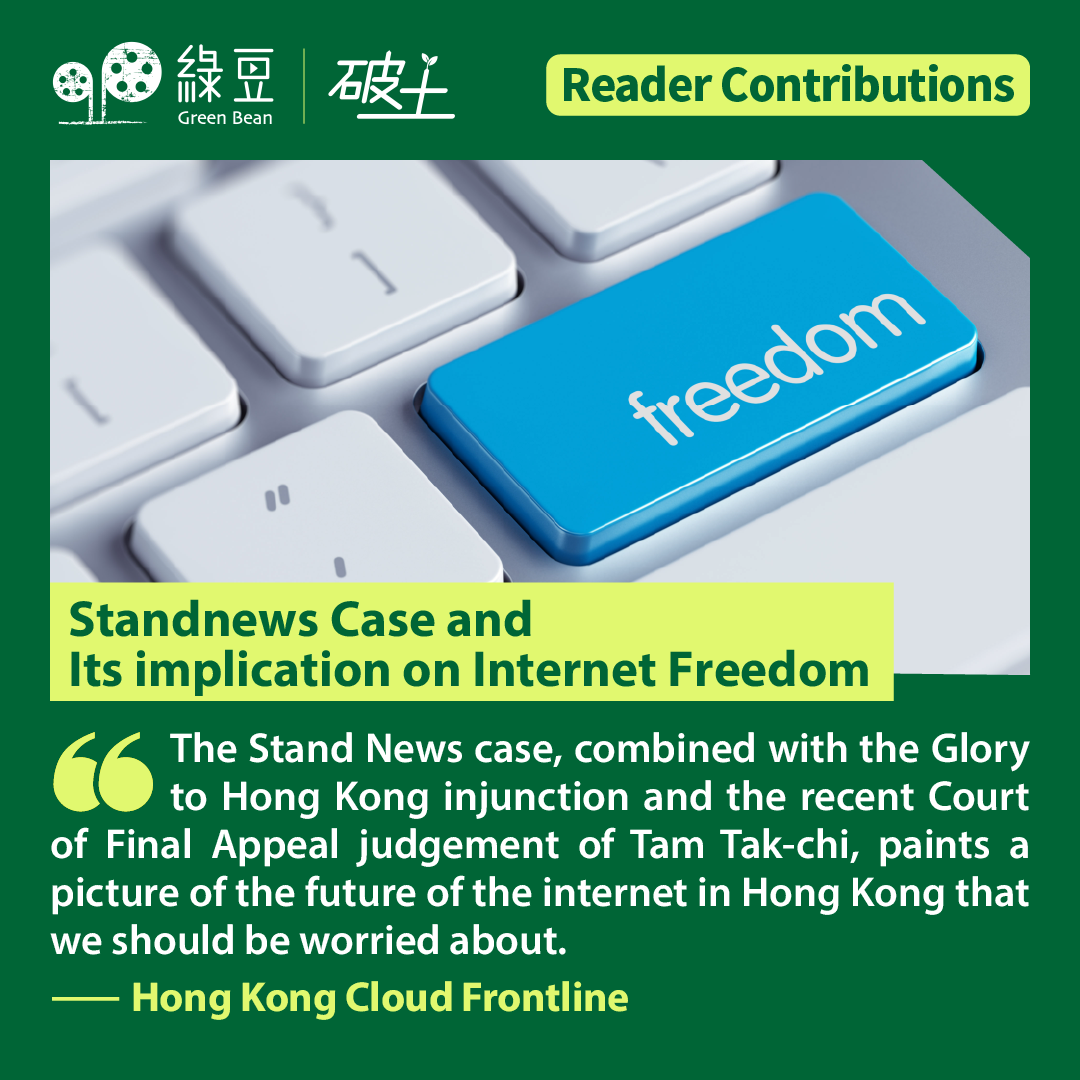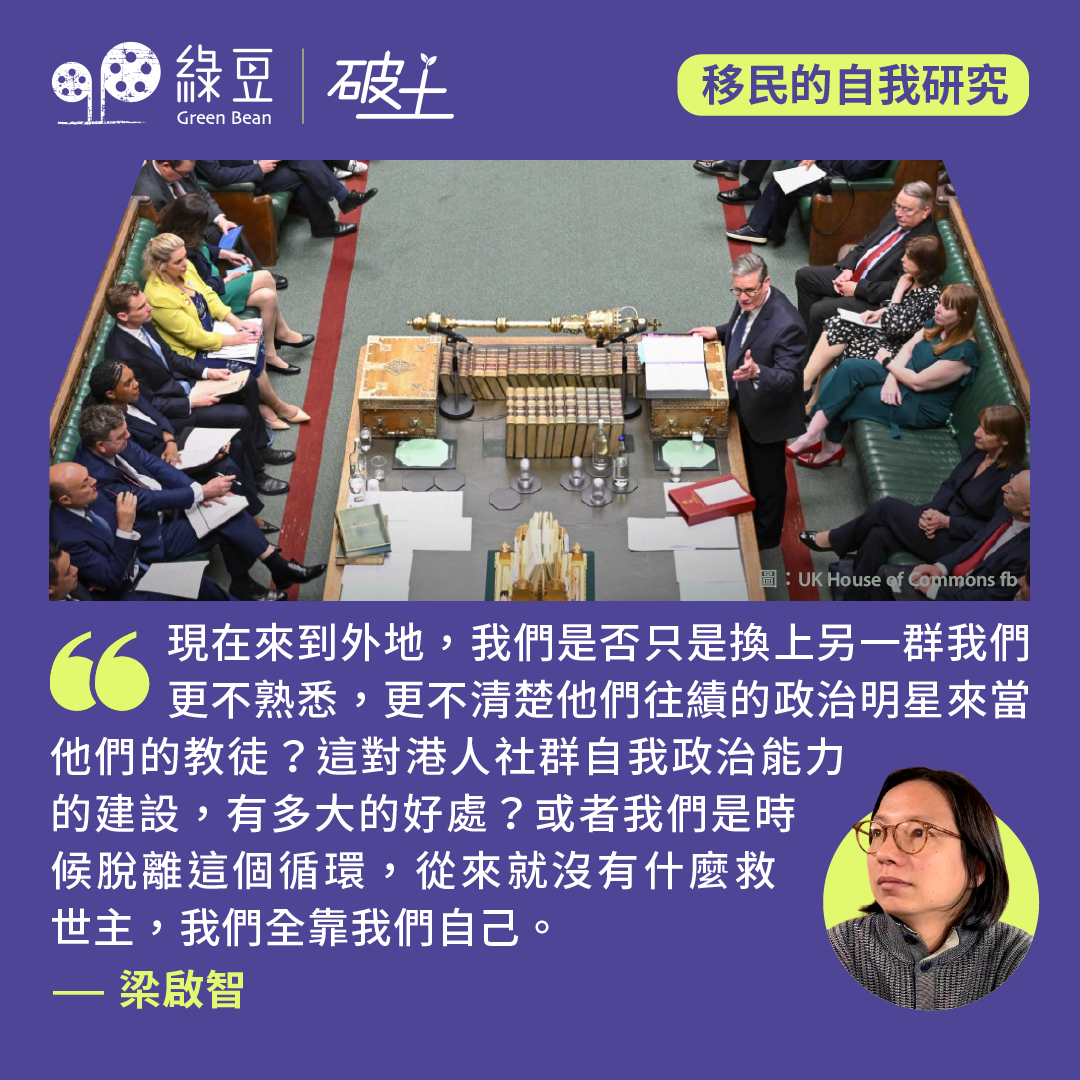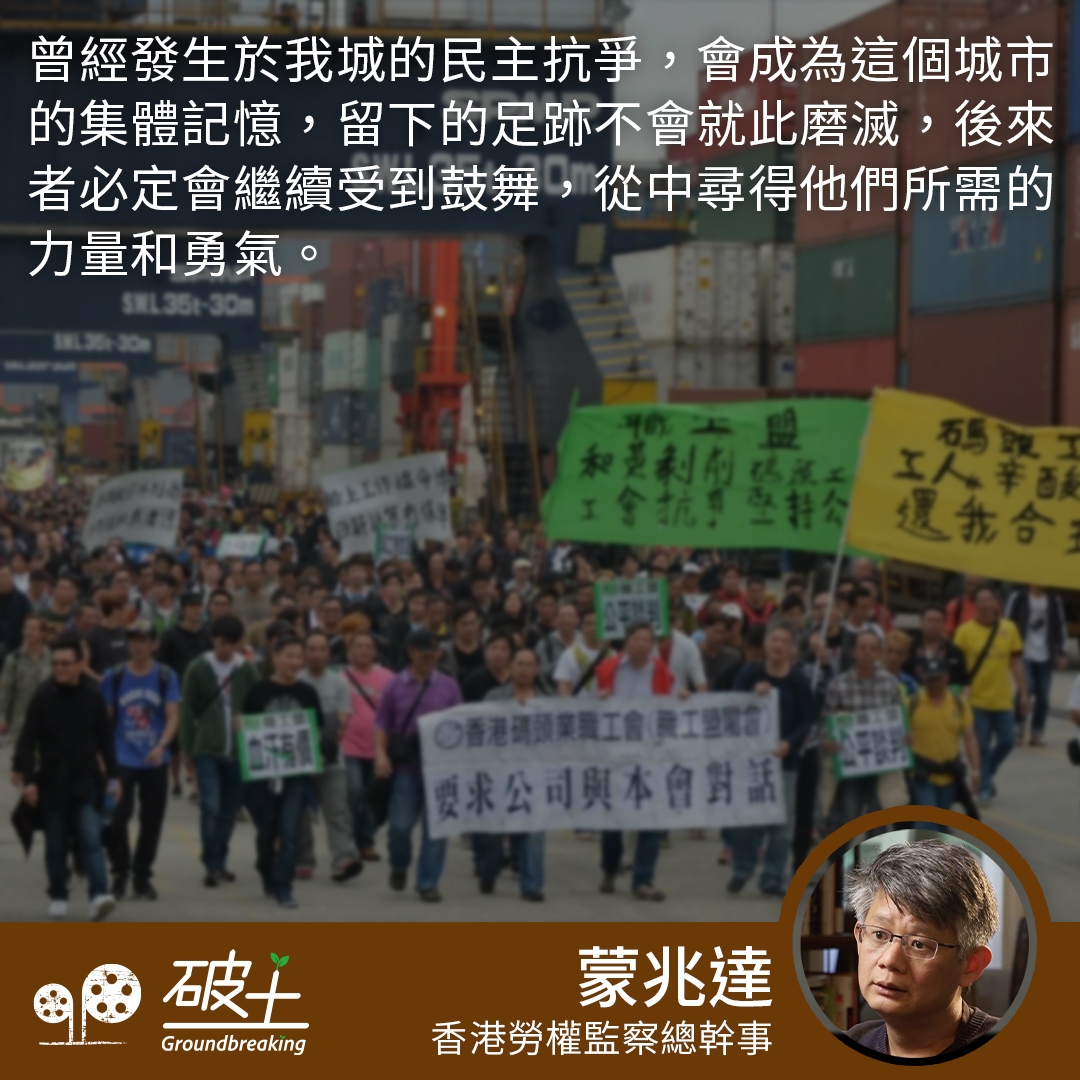Standnews Case and Its implication on Internet Freedom

(Editor’s Note: In addition to having regular columnists, We welcome opinions from readers across the political spectrum—Left, Centrist, and Right.)
In September 2024, the Stand News case finally came to an end, resulting in the two editors being found guilty of sedition, because they allowed a series of op-eds to be published on Stand News, op-eds that were found to be seditious. Why charge the editors and not arrest the writers of the op-eds? Most of the writers of the op-eds are actually either in jail or in exile. The Stand News case was specifically about the liability of the editors and the news organisation.
Questions arose as to what extent the Stand News case would have a chilling effect on press freedom in Hong Kong. Ming Pao, for example, sent around a letter reminding their op-ed writers to “stick with the law.” But Francis Lee, Professor at the School of Journalism at the Chinese University of Hong Kong, said that the case might not have a strong impact, given that everyone is already practicing self-censorship. However, we believe the Stand News case might have a large impact, not only on press freedom, but even extending to internet freedom.
The liability of a social media platform?
How so? After all, traditionally, news publishers and internet platforms are (under the law) considered different entities. Traditional news publishers operate with news editors as gatekeepers who are responsible for deciding what gets published and what not. In contrast, internet platforms, including social media, are platforms where they do not control or censor what gets posted before publication, only after publication.
But here is a thought experiment: what if the Stand News articles that are considered seditious are republished on social media platforms? Given that the editors of Stand News were found liable, what about the liability of a social media platform? What if the government sent a request to the platform, asking them to take down the articles, or request to handover the user data? Would the platform comply? For some answers, let’s consider the arguments in the Stand News case.
An internet platform could argue they are different from a news publisher, saying that they have no editorial process. But this argument is on thin ice at best, given that the Stand News ruling makes clear that intent does not matter. Moreover, the question of whether an internet platform has an editorial process gets more complicated when you involve algorithms in the equation, which can be likened to a kind of automated editorial process, because algorithms are being used by the internet platforms to decide what shows up in your feed, what is recommended to you, and so on. Cases where an internet platform are found liable because of its algorithm are not without legal precedent in Hong Kong: in 2018, the Hong Kong court decided in the case Albert Yeung v Google that the internet platform was liable for the search results in Google’s autocomplete.
An internet platform could also argue that the number of articles is miniscule, given the massive amounts of content that is shared and posted on popular internet platforms. Stand News argued something similar : that it was only 11 articles out of more than 20,000 articles published total, and that the news platform as a whole should be taken into account. But the prosecution argued successfully that the quantity of the articles does not matter. Instead, the prosecution argued 17 articles should be considered seditious, the court upheld that 11 of them were, and this was sufficient to convict the publishers.
Perhaps most chilling is that the prosecution successfully argued that intent does not matter, and that it is enough that the publisher displayed a level of recklessness in their decision to allow the offending articles to be published. What would the internet platform have to do in order to avoid being reckless and therefore liable? Would it be sufficient to takedown the offensive content once the platform is sent a request by the Hong Kong authorities, or might it even have to proactively monitor for content that potentially might be offensive, without any prompting from the government?
Picture of the future of the internet in Hong Kong
Perhaps the most powerful tool the authorities would have in today’s Hong Kong is the National Security Law. Under NSL Article 43, the Hong Kong authorities have the right to compel a platform to remove the content, if they feel they have “reasonable grounds” to suspect that a message is likely to constitute an offense endangering national security.
What does all this mean for internet freedom in Hong Kong? We argue that the Stand News case raises questions beyond press freedom, and that we need to start asking how it might affect how internet platforms are operating in Hong Kong.
We already have seen that Google complied with the injunction of the Hong Kong authorities to restrict access to “Glory to Hong Kong.” We also have seen the chilling effect of this case: in the wake of Google’s decision to comply, various music distributors have requested streaming platforms to remove the song, to avoid liability.
The Stand News case, combined with the Glory to Hong Kong injunction and the recent the Court of Final Appeal judgement of Tam Tak-chi (a.k.a Fast Beat) which upheld the constitutionality of the sedition law and clarified that seditious intent does not require an element of violence, paints a picture of the future of the internet in Hong Kong that we should be worried about.
At first sight, the internet in Hong Kong might still seem relatively free right now, especially compared to the internet in China. But self-censorship is already growing. And at this point, we can reasonably expect that when Hong Kong authorities send censorship requests to internet platforms, that they might restrict access in Hong Kong or even take it down altogether. This seems “simply” to be the price for doing business in today’s Hong Kong, and it seems to be a price the internet platforms have accepted and are willing to pay. We hope we are wrong.
It was not too long ago that the internet platforms made an important decision to protect internet freedom in Hong Kong, when they announced that they would suspend all user data requests from the Hong Kong government, following the introduction of the National Security Law in Hong Kong. We can be cynical, but internet platforms are (sometimes) capable of doing the right thing. We can only hope that when the Hong Kong government is sending them censorship requests, they will continue to display the same moral courage they did back then.
( Pic : Shutterstock )





